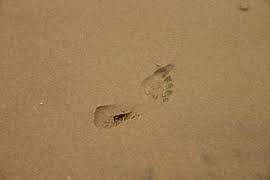Life Lessons from the Torah Portion
Shemot Exodus 1:1 – 6:1
In all movements forward and in moments of growth we need to unshackle ourselves from preconceived notions .We must liberate ourselves from the stagnant rote of our lives. At times Divine intervention facilitates that by allowing crisis and testing to enter our lives. The entry of “difficulties” into our corporate and individual lives needs to be see less as punishment and more as a prodding and urging to rediscover inner strength. Not “LAMA” ( why is this happening?) but” LE-MAH” ( for what purpose is this occurring at this point?).
Moshe ( Moses) our ancestral teacher had to undergo such a process.
The young Moshe had ventured out of Pharaoh’s palace to explore the state of his people. He sees a Hebrew slave being beaten almost to death. After looking around and seeing that “there was no man around” (Exodus 2:12), he intervenes and kills the assailant. Later when he tries to intervene between two Israelites fighting, he is chastised by one of them As a result, Moshe escapes to Midyan when he realizes that “the thing ( ha Davar) is known.” (Exodus 2:14)
Our sages explain that “the thing( ha Davar) ” that became known was an answer to a question that was perplexing Moshe .Could these Israelites be capable of rising up and achieve liberation? Had they sunk so low? In frustration and despondency, Moshe escapes to Midyan and he is not heard from for over sixty years. He escapes into anonymity.
It is only after the age of eighty, sixty years later, that he is confronted with the burning bush on the mountain of G-d. So Moshe then makes a determined decision to investigate this unexplained phenomenon, a bush burning in a fire and yet not becoming consumed. Moshe thought, “I will turn aside now and book at this great sight, why will the bush not be burned.” (Exodus 3:3)
That “turning aside” seemed to be a critical step. We sense its importance in the wording of the next verse: “Hashem saw that Moshe turned from his path to see the sight and He called out to him from amidst the bush.” (ibid 3:4) The fact that Moshe turned from his path seems to be significant in G-d’s subsequent revelation to Moshe. The Midrash Tanchuma describes G-d as saying, “You made the effort to investigate and see; I declare you are worthy of my revealing Myself to you.”
Yet, liberation and redemption awaited a small but powerful “turning” on the part of the people: “…and the children of Israel sighed by reason of the bondage, and they cried out, and their cry came up unto G-d by reason of the bondage. And G-d heard their groaning….” (Exodus 2:23-25)
So when G-d sees that Moshe turns to see this unusual sight He sees a man ready to step into destiny, much like the sigh of his people.
Hashem saw that he had turned to see, and G-d called to him from within the thorn bush, and He said, “Moshe, Moshe!” And he said, “Here I am!”( ibid:4)
Yet before Hashem explains further, He says to Moshe
“Do not draw near here. Take your shoes off your feet, because the place upon which you stand is holy soil.” (ibid:5)
The Nefesh HaChayim (R. Chayim of Volozhin, 1749-1821) sees the relation of the body to the soul akin to that of the shoe to the body. Moshe is told to be ready to step out of his physical reality and experience in oreder to truly understands the spiritual subtext of life.
Other sages focus on the word “holy soil-Admat kodesh”. Moshe is told to feel the ground upon which he is standing for that is where he came from and that is where he is returning. In other words, be humble and do not let arrogance and pride blind you from understanding the holy truths that abound.
Reb Nachaman taught that The words “Take your shoes ( Naalecha) off your feet (Raglecha)” hint at another truth. The words “your shoes (Naalecha)” whisper of another Hebrew word Manulim or locks. The word “your feet” ( Raglecha) ” is related to the word Hergelecha or your habits.
Moshe is being told that in order to understand what Hashem is truly doing in the world and what Moshe’s role will be in that , one must remove the locks or constraints in our lives put there by our habits and societal norms. Only then will Moshe understand the message of the burning bush.
This message was reinforced when Moshe turns to Hashem and inquires about His name.
And Moshe said unto G-d: ‘Behold, when I come unto the children of Israel, and shall say unto them: The G-d of your fathers hath sent me unto you; and they shall say to me: What is His name? What shall I say unto them?’14 And G-d said unto Moshe:” Ehyeh asher Ehyeh” ‘; and He said: ‘Thus shalt thou say unto the children of Israel :Ehyeh hath sent me unto you.’ ( EXODUS 13:13 -14)
When Moshe asks G-d “and they shall say to me: What is His name?”, he is actually asking how are these people meant to relate to you.
Most English translations translate the words Eh-yeh asher Eh-yeh in the following way; I Am That I Am and that translation is generally incorrect. In Hebrew the word Hayah means “existed” or “was” but the word “Ehy-eh” is the first person singular present/future form. Eh-yeh asher Eh-yeh therefore really means “I Shall Be What I Shall Be”.
This is similar to the translation we see in the book of Zechariah;
“And I will bring them, and they shall dwell in the midst of Jerusalem; and they shall be My people, and I shall be( Ehy-eh) their G-d, in truth and in righteousness.( Zechariah 8:8 )”
The impact of such a variance in understanding is powerful and deeply significant. The statement “ I Am That I Am” bespeaks an Eternal G-d that has always been and always will be. That is a true statement but in fact may not be the concept G-d was trying to transmit at this juncture in history . There is no point in transmitting to the Israelites suffering under the burden of slavery that the G-d that was ,is the G-d that always is. People collapsing under the yoke of hatred and oppression do not have the ability to look up to the heavens, let alone see the Infinite and powerful G-d for what he is.
When Moshe asks G-d “and they shall say to me: What is His name?”, he is asking how can these people relate to you and how can they be inspired?.
G-d answers that “I Shall Be What I Shall Be.”
Rabbi Yehuda HaLevy, author of the theological text ,the Kuzari, explains that this use of the future tense describes G-d not as much as the G-d of being but rather as the G-d of Becoming.
That truth helped Moshe truly understand the message of the burning bush .Just as this small burning bush was not to be consumed, the people of Israel, his people, were not to be consumed by the fires of slavery, either.
Moshe is clearly being told not to lose faith in his people. He needs to understand that the experience of exile and difficulties becomes the fertile ground of true liberation. He needed to break away from his preconceived ideas and axioms too understand what was “Becoming“ and “Unfolding” before him.
A deep lesson for us all.
LeRefuat Yehudit bat Golda Yocheved

